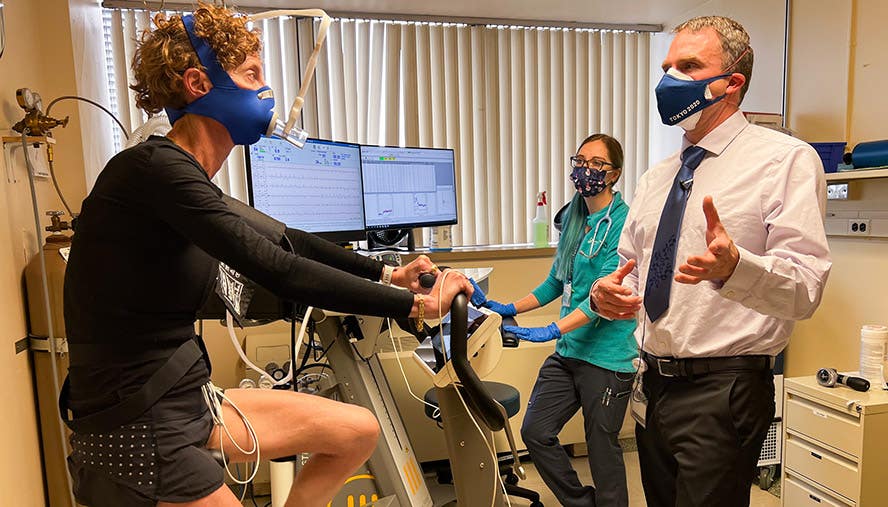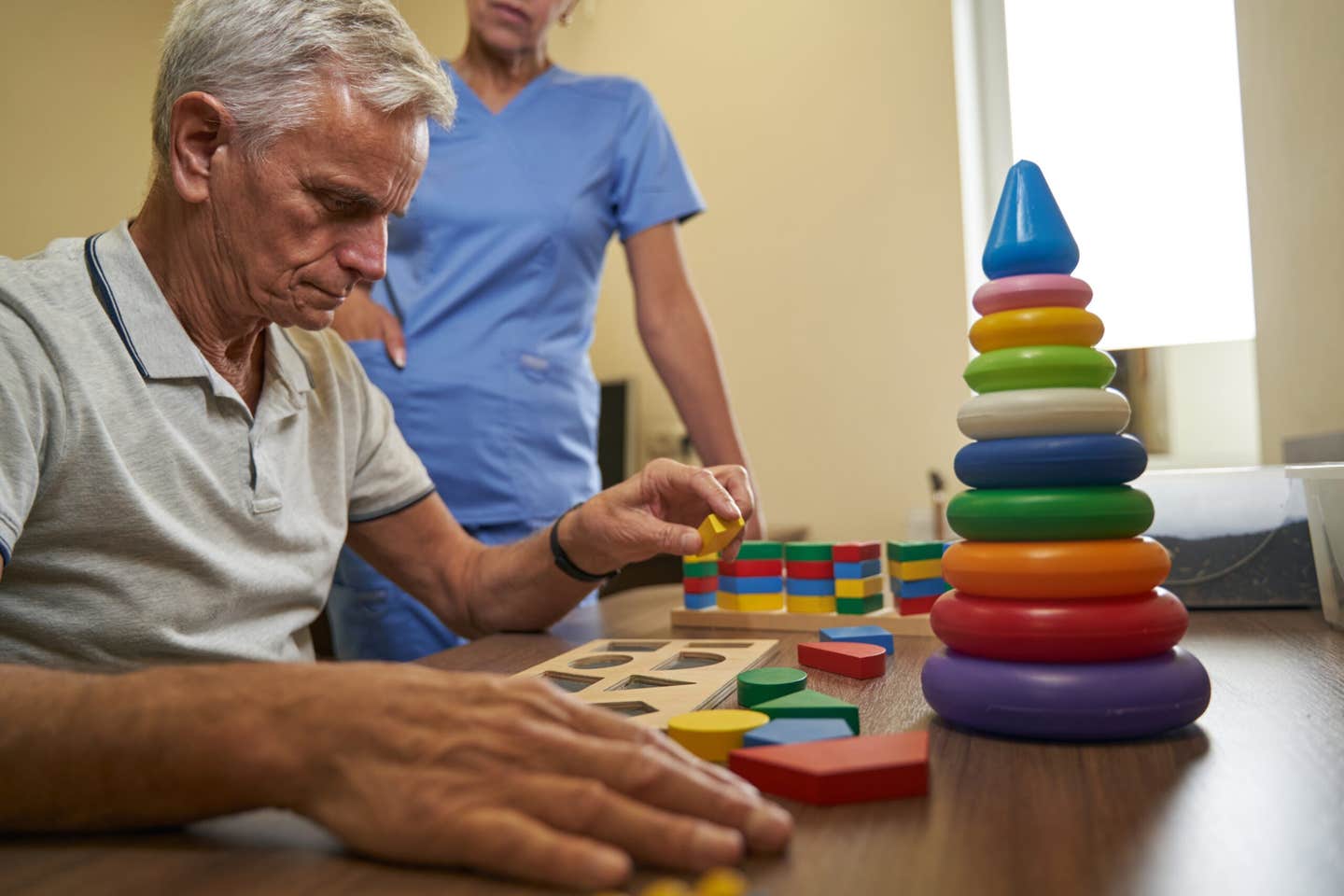Exercise may restore immune system in people with long COVID
Exercise may repair immune function in long COVID patients, easing fatigue and boosting recovery, a new UK study finds.

A UK study shows exercise can restore immune balance in people with long COVID, easing symptoms and helping the body fight infections. (CREDIT: National Jewish Health)
Exercise may be one of the simplest and most effective ways of allowing your body to heal from long-term COVID-19 symptoms. A team of researchers from the United Kingdom has shown that a supervised rehabilitation program can restore balance to the immune system in patients with post-COVID syndrome.
Their findings, being presented at the European Respiratory Society Congress in Amsterdam, show how exercise might do more than boost fitness—it may help heal the immune system itself.
Demystifying Immune Imbalance After COVID
Post-COVID syndrome, or long COVID, can linger for months after infection. People who have it often experience fatigue, muscle and joint ache, and brain fog that disrupt everyday activities. Researchers believe one reason is that the immune system sometimes gets confused after the virus, attacking healthy cells or overreacting to harmless stimuli. That malfunction can leave the body in a state of chronic inflammation.
Dr. Enya Daynes, who presented the research on behalf of Professor Nicolette Bishop's team at Loughborough University, explained it as follows: "Research suggests that individuals with post-COVID syndrome are at increased risk of immune dysregulation whereby, instead of protecting the body, the immune system in fact becomes overactive or misdirected and attacks the body's own healthy tissues or over-reacts to something that is not harmful."
The Eight-Week Program
To determine whether exercise could help, the researchers enrolled 31 patients who were hospitalized for COVID-19 and later developed long-term symptoms. Some of these patients were randomly assigned to an eight-week supervised program of treadmill walking, cycling, and light strength training. Others received standard follow-up care with no formal exercise.
At the end of the trial, volunteers who had received the rehabilitation program showed improvement in some immune cells. They were naïve immune cells, which recognize new infections, and memory cells, which allow the body to react quickly to viruses it has encountered before, like COVID-19.
Dr. Daynes said: "We observed the improvement in central memory CD4+ T cells. These are the ones that provide an immediate response to any infection the body has had before, which can be COVID. We also observed that central and effector memory CD8+ T cells improved throughout the body. These cells can recognize and fight future infection earlier, and you have a very important systemic immune response, and long-term immunity."
Why Exercise Helps
It seems that exercise does more than build muscle tone or endurance. The research team believes it works by boosting blood flow, which enables immune cells to move around more efficiently and search for threat. It also enhances communication between immune cells so that they orchestrate their response.
Regular exercise may also speed up the production of new cells, eliminating damaged or overactive ones and reducing inflammation. That is, exercise creates the perfect condition for the immune system to regain balance.
Expert Perspective
The findings have been drawing interest across the medical community. Dr. Guido Vagheggini, part of the European Respiratory Society's expert group on respiratory clinical care and physiology in Italy, not involved with the study, believes the results are important. "Post-COVID syndrome happens in people of all ages. Symptoms can last for months and can prevent people from returning to normal life in the school or workplace," he said.
He also stated that long COVID is still not well understood, particularly how it interferes with immune function. That something as straightforward as supervised exercise can restore balance is heartening. "This study shows that patients with post-COVID syndrome who are able to complete an exercise-based rehabilitation programme can experience improvement in the function of their immune cells. This could mean fewer symptoms of immune dysfunction such as fatigue and joint pain. They could also be better at fighting COVID and other future infections," Vagheggini said.
The researchers from Loughborough University now plan to expand their research to patients who developed COVID but were never hospitalized. Long COVID patients are among numerous who fall into this group, and determining if exercise is similarly helpful for them could facilitate broader rehabilitation. Since exercise is already used in recovery from illness, these findings may also prompt the implementation of standard programs tailored to immune function.
Practical Applications of the Research
Should the findings hold true in larger groups of people, exercise-based rehabilitation could become a fundamental aspect of long COVID care. That would give people experiencing ongoing fatigue and pain a drug-free route to recovery and an earlier return to work, school, or everyday life.
More broadly, understanding how exercise impacts immune function could prompt researchers to create therapies for other conditions linked to chronic inflammation.
It also provides individuals with something they can do themselves: exercise as medicine for the body and immune system.
Research findings presented at the European Respiratory Society Congress in Amsterdam.
Related Stories
- New portable testing device rapidly detects HIV and COVID-19 with high accuracy
- Wuhan market samples provide new evidence of COVID-19 origins
- UPenn researchers reinvent the way COVID-19, cancer, and genetic disorders are treated
Like these kind of feel good stories? Get The Brighter Side of News' newsletter.
Rebecca Shavit
Writer
Based in Los Angeles, Rebecca Shavit is a dedicated science and technology journalist who writes for The Brighter Side of News, an online publication committed to highlighting positive and transformative stories from around the world. Her reporting spans a wide range of topics, from cutting-edge medical breakthroughs to historical discoveries and innovations. With a keen ability to translate complex concepts into engaging and accessible stories, she makes science and innovation relatable to a broad audience.



